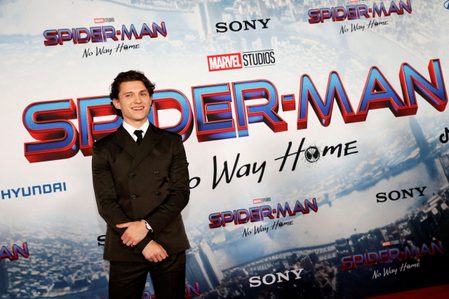SUMMARY
This is AI generated summarization, which may have errors. For context, always refer to the full article.

When Spider-man: No Way Home was announced and the trailer was dropped, I was excited but skeptical. Sony had already released an excellent film exploring the multiverse in Spider-Man: Into the Spider-Verse and it was going to be difficult to live up to the sheer imagination, humor, and flexibility of the animated film – especially as No Way Home positions itself as a culmination of a decades-spanning journey with Spider-man.
Before the Marvel Cinematic Universe (MCU) had its chokehold on the pop culture sphere, people were already in love with Spider-man. A lot of this hinges on the character’s inherent relatability. It’s hard to connect with Norse gods and super-rich tech-geniuses, but you can always find some part of yourself in a young kid trying to have a normal life, a normal relationship. The most magical scenes in the previous franchises hinge on this normalcy, and mix together Peter’s otherworldly circumstances and his romantic desires — the upside-down kiss in the rain between Peter (Tobey Maguire) and MJ (Kirsten Dunst) or even Peter’s (Andrew Garfield) confession to Gwen (Emma Stone) on the rooftop.
Despite being a fan of the most recent iteration of the Spider-man franchise, the connection to the Marvel Cinematic Universe has taken the character out of his humble beginnings in Queens and created a Peter whose heroism depended mostly on his association with the Avengers. Maguire and Garfield’s characters have had the opportunity to show off their intelligence, self-sufficiency, and independence, whereas Tom Holland’s Peter has had the sheer luck of access to Stark technology.
Which is why, as wild as it may sound, No Way Home is a welcome return to Peter Parker’s roots. After his identity is revealed by Daily Bugle host J. Jonah Jameson (J.K. Simmons), Peter Parker (Holland) is thrown for a loop: with death threats and unwanted stares from strangers everywhere. When his girlfriend MJ (Zendaya) and his friend Ned (Jacob Batalon) fail to make it into MIT due to their association with Peter, he enlists the help of Doctor Strange (Benedict Cumberbatch) to make everyone forget he’s Spider-man. Except the spell goes horribly wrong, and instead, villains from the Spider-man multiverse — Green Goblin (the brilliant Willem Dafoe), Doc Ock (Alfred Molina), Sandman (Thomas Haden Church), the Lizard (Rhys Ifans), and Electro (Jamie Foxx) — begin to enter Peter’s world and attempt to get even.
Instead of returning the villains to their timelines and leaving them to suffer a horrible demise, Peter proposes to cure them before returning them, hoping they survive. In the hands of a different actor, this decision would be described as sheer stupidity (because, well, it is). But Holland’s performance possesses the youthfulness, inexperience, and charm necessary to convey Peter’s naiveté and heart, especially as he wrestles with the repercussions of these indecisions.
The narrative core of the Spider-man cinematic franchise has always been a love triangle between Peter, his significant other, and his moral responsibilities as a superhero. Peter has been lucky enough to be insulated from most of the repercussions of his actions but the franchise has slowly built up a world wherein his desires are in direct conflict with his duties.
In Homecoming, his encounter with the Vulture ruins the life of the girl he likes, and in Far From Home, mistakenly trusting Mysterio causes his identity to be revealed to the world. In No Way Home, when Peter’s plan of saving the villains backfires and ends with the death of Aunt May (Marisa Tomei, always deserving better), he suddenly realizes that the stakes are real. Soon comforted by MJ, Ned, and his counterparts from alternate universes (Maguire as Peter-Two, Garfield acting circles around everyone as the delightful Peter-Three), Peter is forced to grow up overnight to correct his childish choices.
Throughout the night, he works with the team to develop cures for the rest of the villains and becomes the de facto leader of the group. The calm before the storm embraces the youthful humor that is unavoidable in Spider-man: referencing memes, answering long-standing questions about webbing, and initiating conversations between the Spider-men about their relationships, previously encountered villains, and even back pain. It’s easy to dismiss these moments (and the entire film) as high-budget fan service, and admittedly, maybe it is. But what No Way Home gets right is that it injects each moment with unadulterated fun and surprising emotion, simultaneously rewarding fans for knowing, but also punishing them, too — especially when Peter-Three rescues MJ from a falling building, a form of atonement for his inability to save Gwen in his own universe.
The culmination of Spider-man: No Way Home is a coming-of-age film that reminds people that anyone can be a hero, and this rings true again: from Ned suddenly discovering that he can use Strange’s Sling Ring to Doc Ock helping the Peters cure the other villains. But the corollary seems to also be true, especially as Peter attempts to kill Osborn in a fit of revenge for May’s death, only to be stopped by Peter-Two. It hints at a darker side of Holland’s Peter, one which has been continuously repressed but has been brought to the surface by overwhelming grief.
When Peter makes a sacrifice to prevent other villains from entering the universe, it doesn’t immediately make sense, nor does it (and I can’t believe I’m saying this) necessarily have to. Peter has always struggled with straddling the different worlds he is in and in encountering his shadows (Peter-Two and Peter-Three), he comes to the conclusion that his hero self is the one that must always win. The moment is a tearjerker despite its brevity, especially as MJ and Ned solidify themselves as a team with Peter, only for all that to be taken away.
When he enters the cafe after the spell has been cast, hoping to speak to Zendaya and reverse some part of this decision, he notices a wound on her head and backtracks. It’s a subtle but painful reminder that the price of being a hero is often paid for by those closest to us. Unwilling to subject her to the same pain, he decides to leave her be.
Where it leaves Peter is uncharted waters, and it has been a while since we have had such a satisfying, utterly bewildering ending from the Marvel Cinematic Universe. Filled with risk and uncertainty, Spider-man: No Way Home breathes new life into a beloved franchise and opens up endless possibilities for where to take our favorite webslinger. – Rappler.com
Add a comment
How does this make you feel?

There are no comments yet. Add your comment to start the conversation.